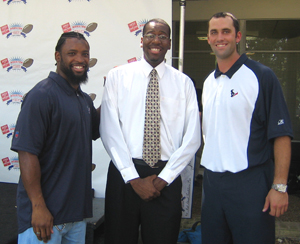Brothers and sisters of autism
by Beth Finke
AÂ story in this month’s issue of Vanity Fair reports how famous playwright Arthur Miller had his son Daniel, born with Down syndrome, placed in a “home for infants” in New York City.
Miller was concerned about what his daughter Rebecca’s life would be like if she grew up with a brother who had a disability. In the article, a friend recalls Daniel’s mother saying Miller felt it would be “very hard for Rebecca, and for the household to raise Daniel at home.”
Another friend remembers “it was a decision that had Rebecca at the center.”
There weren’t many support services for siblings of children with disabilities back in 1966, when Daniel Miller was born.
Thank goodness things have changed.
The brothers and sisters of children who have autism or other disabilities are a special lot. Easter Seals’ services offer help and hope to children and adults living with autism and other disabilities, and to the families who love them.
This includes siblings.
Through my work at Easter Seals, I’ve also learned about another resource for siblings: the Sibling Support Project offers support to the brothers and sisters of people with special health, mental health, and developmental needs. The Sibling Support Project sponsors the Internet’s first and largest listserv for people who have brothers or sisters with autism, or other disabilities.
Today, with more support services for siblings, the brothers and sisters of children with disabilities can take advantage of an opportunity Rebecca Miller missed out on.







 The icing on the cake was the Houston Texans players –Â
The icing on the cake was the Houston Texans players –Â 